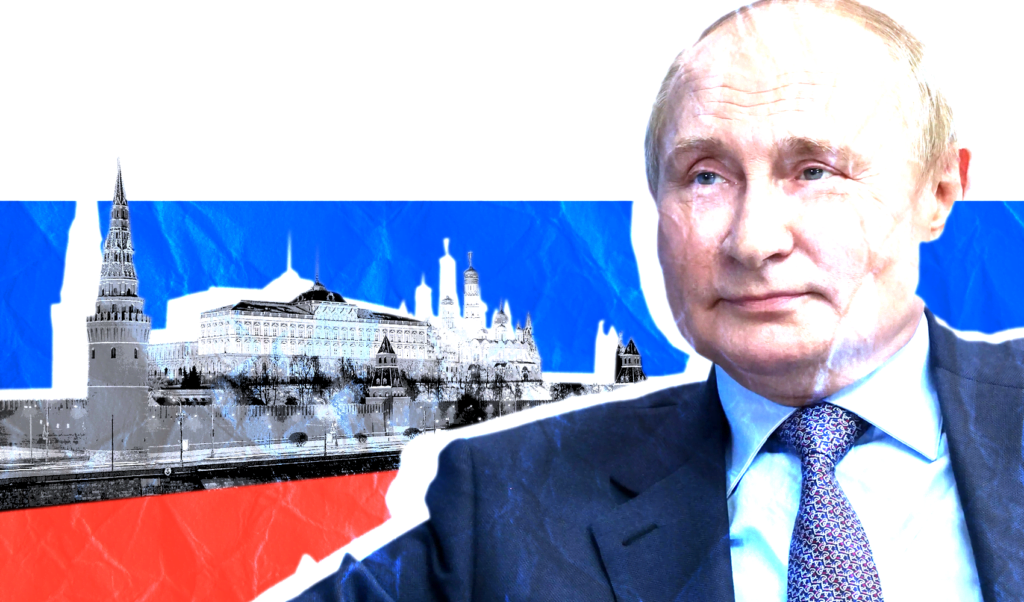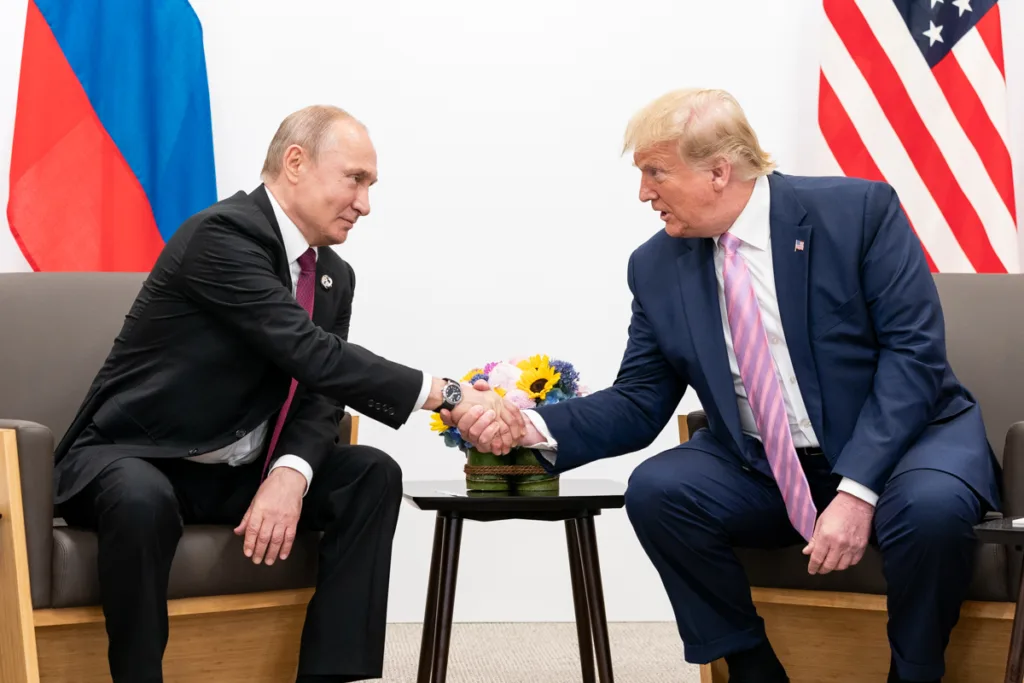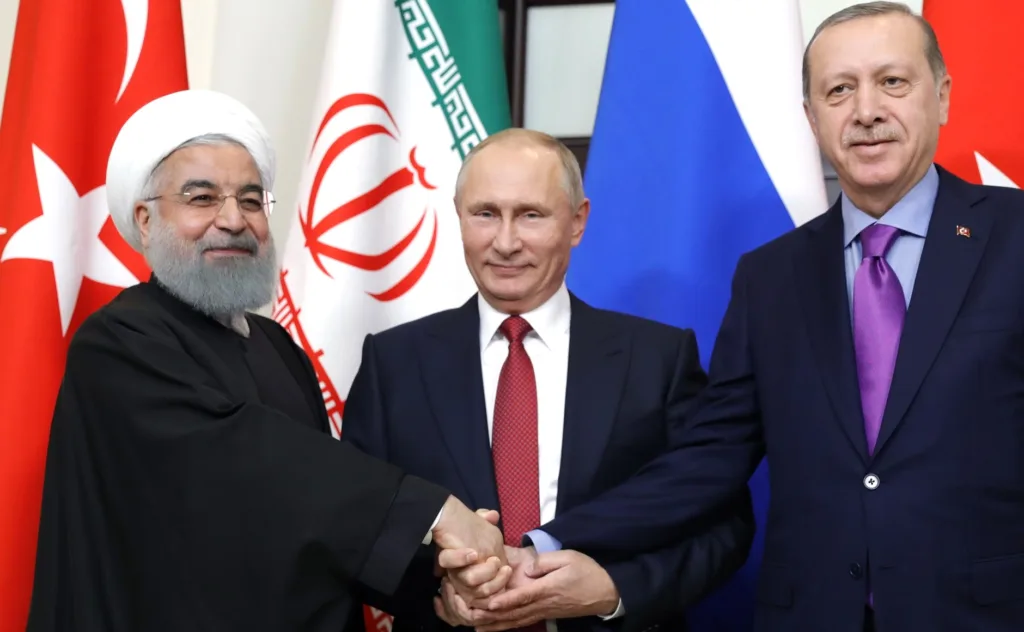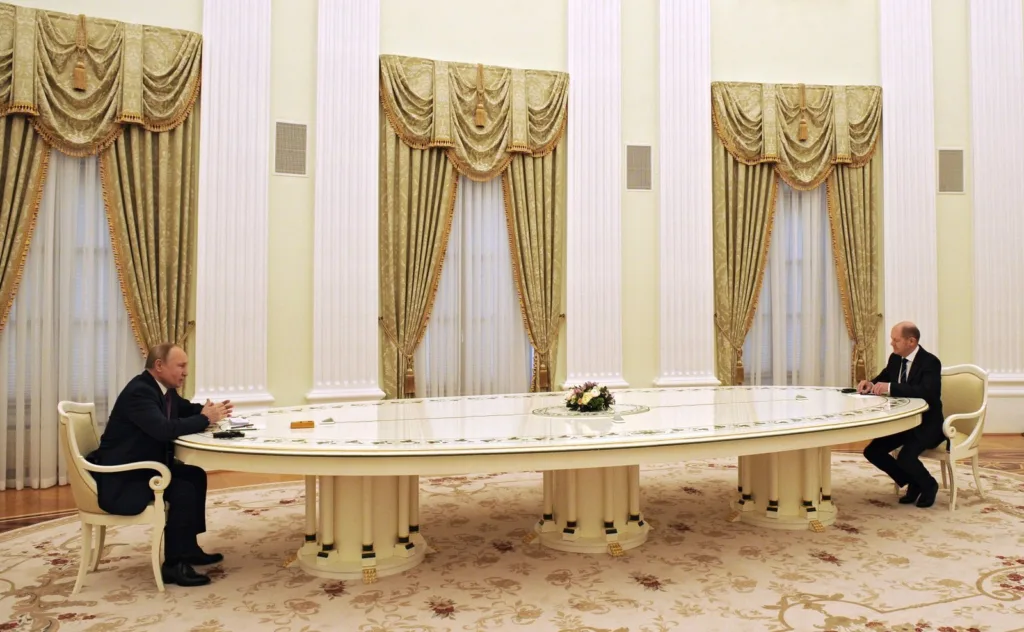We use cookies to improve your experience with Monash. For an optimal experience, we recommend you enable all cookies; alternatively, you can customise which cookies you’re happy for us to use. You may withdraw your consent at any time. To learn more, view our Website Terms and Conditions and Data Protection and Privacy Procedure.
Democracy loses as Putin wins again
Published on March 19, 2024There was no doubt Vladimir Putin would win Russia’s election, but the amount of people showing up gave this sham vote its veneer of legitimacy.
 Putin’s vice-like grip over Russia’s political landscape and media leaves no room for fair elections. : Michael Joiner, 360info CC by 4.0
Putin’s vice-like grip over Russia’s political landscape and media leaves no room for fair elections. : Michael Joiner, 360info CC by 4.0
There was no doubt Vladimir Putin would win Russia’s election, but the amount of people showing up gave this sham vote its veneer of legitimacy.
Vladimir Putin has won yet another term as Russian President. His win, with around 88 percent of the vote, means he is set to be in charge of the cross-continental super power until at least 2030, meaning he is likely to overtake Josef Stalin as the country’s longest-serving ruler.
Putin’s vice-like grip over Russia’s political landscape and media leaves no room for fair elections to flourish, yet the Russian isn’t the only leader thumbing his nose at democracy and the finer points of multi-party systems.
Across the globe, increasingly, autocratic leaders are leveraging the legitimacy of general elections and political opposition as a way to keep protesters off the street and things like corruption and poor policy out of the spotlight.
While many see this as an issue for nations familiar with one party rule, the slow creep of dictatorial tendencies is being seen by some as a way around the hard work of living in a society that wants lots of different things as opposed to what politicians see as good for them.
While Moscow may fail to convince many that Vladimir Putin is anything but a tsar-like figure, can US republicans claim to be anymore devoted to multi-party politics with the party getting behind a candidate who vows to be a dictator “for a day” if he is reelected in November.









